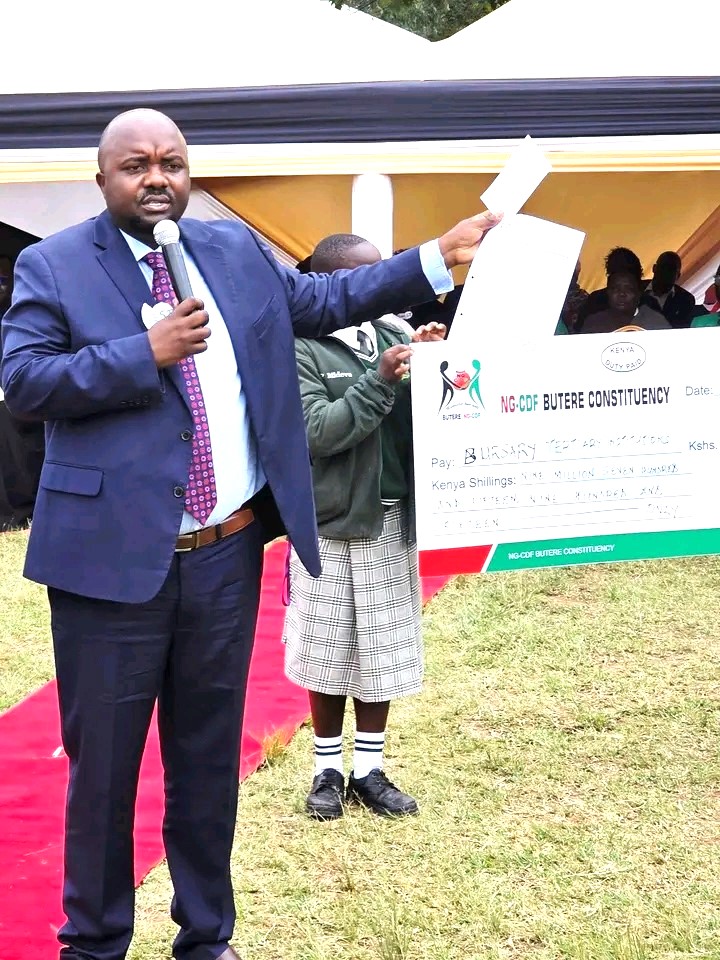When a section of the media ran the headline “Principals from Hell: Inside the Rot at TSC” on November 11, it did more than provoke outrage — it wounded an entire profession. The word “Hell” — which in both the Bible and Qur’an denotes eternal torment — was a moral and spiritual misstep. To liken educators to the damned is to desecrate the very idea of teaching, long regarded as sacred work across civilizations. To call educators “from hell” is to curse the very hands that built the nation’s mind.
Under the Teachers Service Commission Act (2022), a principal is “a lead educator or administrator in a secondary school appointed by the Commission and responsible for implementing educational programs.
This is no ceremonial role. It demands strategic vision, moral stewardship, and unrelenting dedication. Principals anchor the education system — mediating between teachers, students, parents, boards, unions, and ministry bureaucracies — all while delivering results in environments often marked by scarcity and tension.
Behind every principal’s title lie fatigue, sacrifice, and unspoken pain. Across Kenya, many live with hypertension, diabetes, and stress-related illnesses aggravated by relentless pressure. As a former TSC County and Regional Director across six counties, I have witnessed this reality first-hand. Many principals’ car boots double as mobile pharmacies — stocked with drugs, syringes, and blood-pressure kits.
The same car that carries examination papers often carries insulin and painkillers. These are not “principals from hell. “They are men and women who hold schools together — often at the expense of their own health.
As a teacher, teacher manager, and educationist, I cannot sit idly by while a profession I have lived and served is casually dragged through the mud.
I will not read such headlines from the comfort of retirement and say nothing. I must call dogma against dogma and speak truth through the literary voice I still command. Unlike those whose intellectual judgment seems jinxed by commercial pursuit, I will use reflection, not rhetoric, to show that truth and fairness still matter in public discourse.
ALSO READ:
Kisumu JSS intern teachers push for confirmation, say delay could jeorpadise learning in 2026
Journalism is at its best when it enlightens, not when it inflames.
By reducing an entire profession to caricature, the media briefly abandoned its higher calling — to report, contextualize, and humanize. No one denies that a few errant administrators exist, just as in every sector. But to brand thousands of dedicated school leaders as “from hell” is to turn aberration into definition. It is unethical generalization masquerading as truth. When journalism trades empathy for outrage, truth becomes collateral damage.
It bears reminding that many journalists and commentators who now mock school leadership are products of those very classrooms. Their literacy, discipline, and professional grounding were moulded under the care of principals they now malign.
To repay mentorship with mockery is not only ungrateful — it is moral blindness. Faith traditions —from the Bible to the Qur’an —teach reverence for teachers. To vilify them with words associated with eternal damnation is a form of blasphemy against the very spirit of learning.
It is fair to question the Teachers Service Commission’s policies or demand accountability where abuse occurs. But it is deeply unjust to condemn all principals wholesale.
In truth, Kenya’s principals are beacons of learning — custodians of discipline, order, and mentorship in schools that are often underfunded and overstretched. They manage institutions where poverty, indiscipline, and policy confusion collide daily, yet they continue to build and inspire.
Our education sector does not need sensationalism; it needs sobriety and perspective. Behind every school gate stands a principal — not a demon, but a human being entrusted with the hopes of hundreds of learners and the dreams of their parents. The true story of Kenya’s education is not one of “Principals from Hell,” but of “Principals of Hope.” And through their endurance, Kenya’s light of learning continues to shine — even when others choose to dim it with words.
ALSO READ:
From Forest to Academic Giant: How Dr. Charles Kisigot defied all odds to earn PhD in Education
Perhaps the date this headline ran — November 11, should be consecrated as a day of introspection and institutional memory. A day when we pause to remember how carelessly we wounded those who serve, and resolve never to repeat such injury. On this same day, let us honor our principals with the nation’s highest recognition — not merely as recompense, but as affirmation of their indispensable role in building Kenya’s future.
Let us also observe solemn remembrance for the fallen — those principals who perished in the line of duty, often on treacherous roads while transporting examination papers to safeguard the educational futures of our children.
Their sacrifice, and the grief borne by the families they left behind, demands more than silence; it demands national acknowledgment. In doing so, we would wipe away tears and restore dignity to hearts that carry the weight of our children’s dreams.
Yet even as we seek justice, let us also practice mercy. Let us hold our own hearts steady and extend forgiveness — to the journalist who authored the piece and to the editorial gatekeepers who allowed it passage into public consciousness.
For in forgiveness, we do not condone the wound; rather, we affirm our shared humanity and our collective capacity for growth. In this spirit of grace, we cherish the sacred bond between teacher and society, between criticism and reverence, between accountability and gratitude — a bond that, when honored, elevates us all.
By Ibrahim Hish Adan
Ibrahim Hish Adan is a former Teachers Service Commission Regional Director, education policy consultant, and commentator on teacher welfare and governance.
You can also follow our social media pages on Twitter: Education News KE and Facebook: Education News Newspaper for timely updates.
>>> Click here to stay up-to-date with trending regional stories
>>> Click here to read more informed opinions on the country’s education landscape






